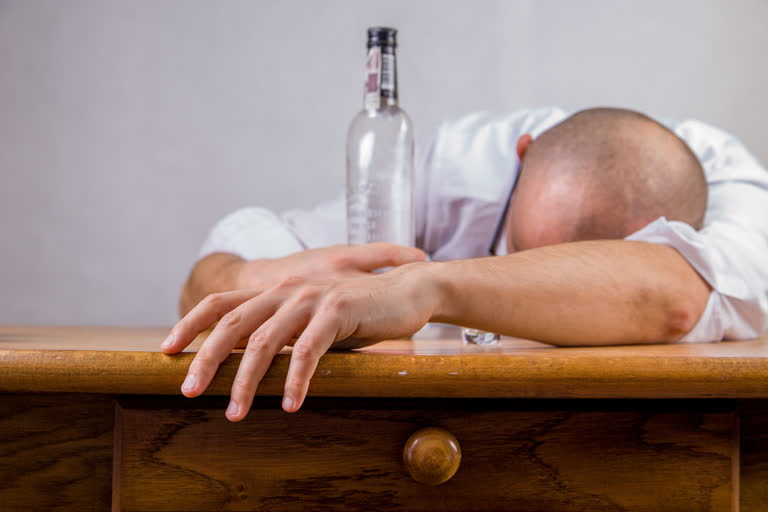Hyderabad: With the government prohibiting the sale of liquor as part of the nationwide lockdown, reports of addicts exhibiting extreme behaviour have surfaced.
While there have been reports of people committing suicide over the unavailability of alcohol, a few addicts have also died after consuming substances like shaving lotions and varnishes.
As a result, the alcohol de-addiction centres and helplines have seen a surge in the number of call they receive during the course of the lockdown.
The problem is particularly highlighted in India, as according to estimates, more than a fifth of the alcohol produced in the world is consumed by Indians.
A study by the Associated Chambers of Commerce and Industry in India two years ago found that the liquor industry was expanding 30 per cent year-on-year.
Read: Kerala HC stays govt's liquor supply order
The total value of spirits, wine and beer consumed in India was estimated to be in the neighbourhood of Rs 1.5 lakh crore in 2015.
According to reports, economic affluence, urbanisation, and changing lifestyles are all persuading young people to take to drinking.
Timeline of incidents post lockdown:
- March 28 (Kerala): Upset over liquor ban, two persons commit suicide in Kochi.
- March 30 (Kerala): 49-year-old threatened to commit suicide by jumping off a double storey building in Changanassery.
- March 30 (Kerala): Frustrated over not getting alcohol, two more persons comitted suicide in Thrissur and Alappuzha.
- March 30 (Kerala): State reports rise in number of alcohol withdrawal syndrome cases.Over 85 per cent of cases were of severe nature, including symptoms of violence and suicide tendencies.
- March 30 (Telangana): From a maximumm of five patients a day, number of addicts visiting IMH in Hyderabad increases to 90.
- April 4 (Tamil Nadu): Three die after consuming after-shave lotion in Pudukottai district.
- April 5 (Tamil Nadu): Three arrested for trying to steal liquor bottles in Chennai.
- April 5 (Tamil Nadu): Three men died and another was hospitalised after consuming varnish in Chengalpet.
- April 5 (Tamil Nadu): Unknown persons looted liquor worth Rs 5 lakh from a TASMAC shop in Dindigul.
The de-addiction process
According to reports, addicts, who have now been deprived of their regular dose of alcohol, have slipped from symptoms such as restlessness and trembling, to severe effects such as seizures and delirium.
Though many believe that exemption might be made for chronic alcoholics if a doctor prescribes daily consumption of certain amount of alcohol, psychiatrists have debunked the idea. They said no doctor will prescribe alcohol to patients, even as little as two or three pegs, as the body will only demand more.
The only suggested path to recovery is through detoxification and de-addiction treatments.
Read: One die, 2 hospitalised after drinking surgical spirit in Andhra Pradesh
Denied alcohol, an addict usually suffers from effects such as trembling, anxiousness, sleeplessness, restlessness, and perspiration. The effects could eventually get more severe, with the addict experiencing seizures and delirium.
Once admitted, the addicts' dehydration and weakness are observed, and fluids and detoxifying agents are given to them. The detoxification process lasts eight to 10 days.



